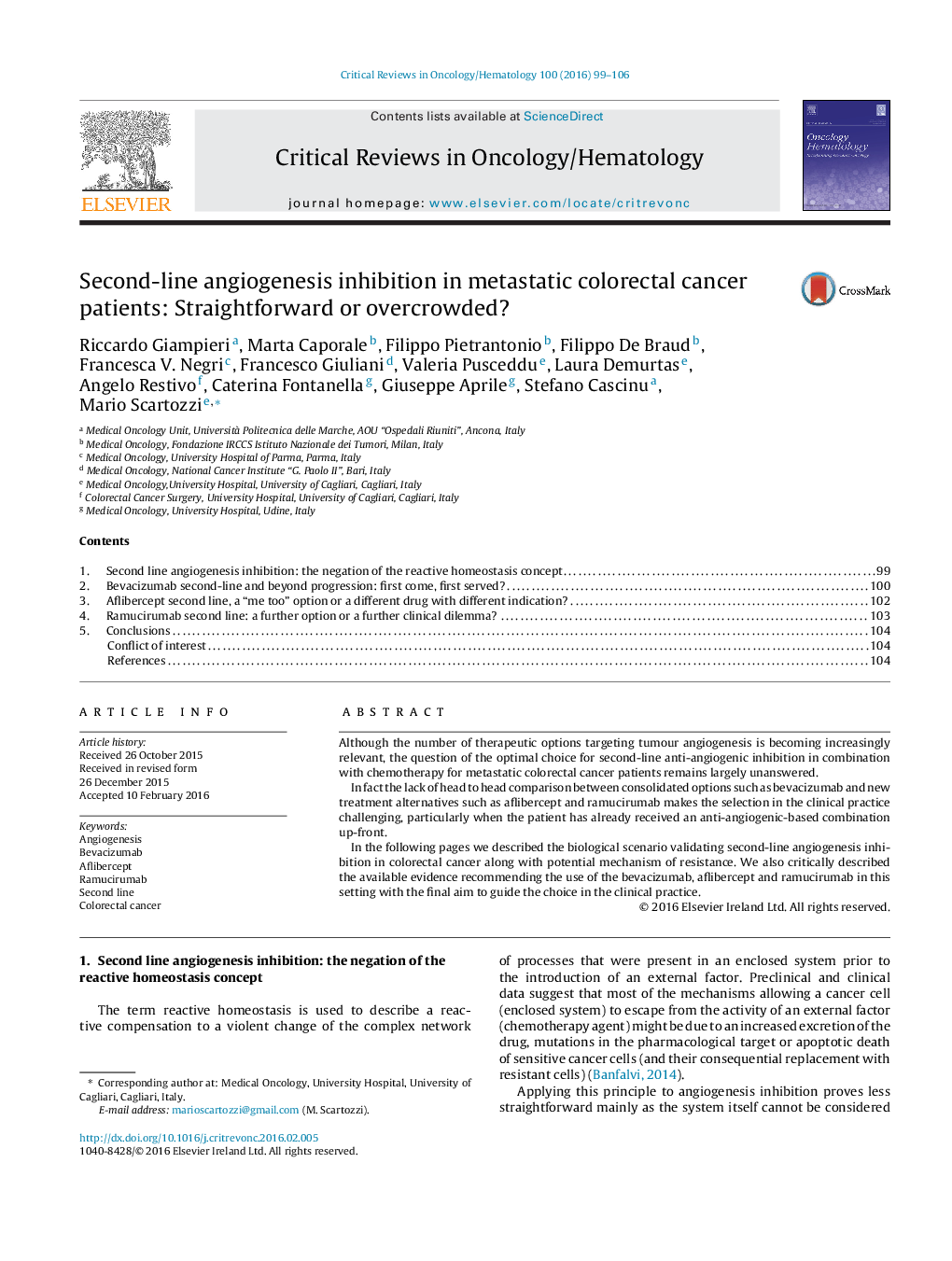| Article ID | Journal | Published Year | Pages | File Type |
|---|---|---|---|---|
| 6113432 | Critical Reviews in Oncology/Hematology | 2016 | 8 Pages |
â¢Angiogenesis plays a central role in colorectal cancer genesis.â¢Importance of maintaining antiangiogenic inhibition in second line.â¢Continuing bevacizumab beyond progression could improve both PFS and OS.â¢The preeminent anti angiogenic approach for the treatment of mCRC remains unclear.
Although the number of therapeutic options targeting tumour angiogenesis is becoming increasingly relevant, the question of the optimal choice for second-line anti-angiogenic inhibition in combination with chemotherapy for metastatic colorectal cancer patients remains largely unanswered.In fact the lack of head to head comparison between consolidated options such as bevacizumab and new treatment alternatives such as aflibercept and ramucirumab makes the selection in the clinical practice challenging, particularly when the patient has already received an anti-angiogenic-based combination up-front.In the following pages we described the biological scenario validating second-line angiogenesis inhibition in colorectal cancer along with potential mechanism of resistance. We also critically described the available evidence recommending the use of the bevacizumab, aflibercept and ramucirumab in this setting with the final aim to guide the choice in the clinical practice.
